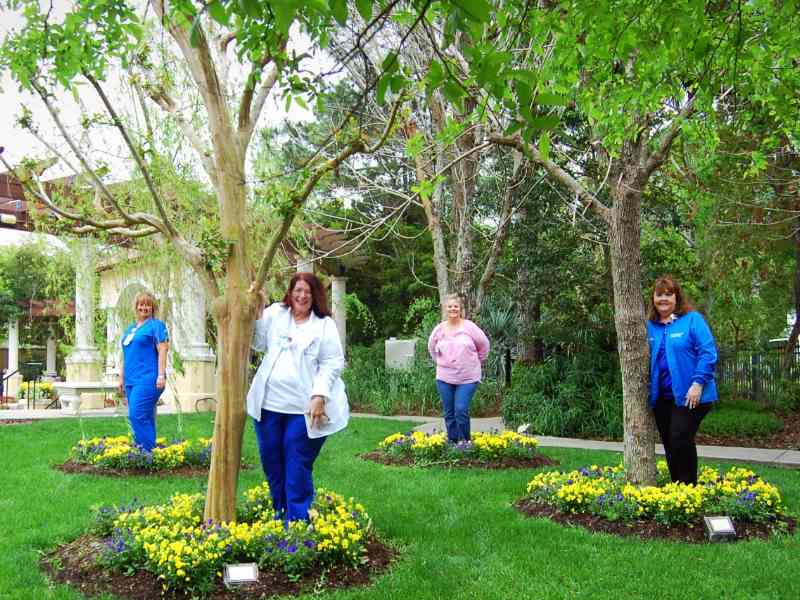by TERESA SCHIFFER
It is estimated that more than 359,000 cardiac arrests take place outside of a hospital setting in the U.S. each year, and only 32 percent of victims receive CPR from a bystander. Unfortunately, 70 percent of Americans either don’t know CPR or their certification has significantly lapsed. Thankfully, Citizen CPR is working to improve those numbers locally. The non-profit organization is dedicated to providing CPR training to anyone who is willing and able to learn and become certified.
Cauney Bamberg, executive director of Citizen CPR, took the time to talk to us about the important work this group is doing. One of the main goals of Citizen CPR is to improve survival rates among cardiac event sufferers locally. About 90 percent of people who experience cardiac arrest outside of a hospital die. However, if CPR is administered, about 45 percent of those people survive. A large percentage of these incidents happen at home, which is why it is imperative to train as many people as possible in using CPR. Citizen CPR works closely with Polk County Fire and Rescue to monitor the statistics relating to survival rates for cardiac events.
Citizen CPR teaches a variety of methods of CPR, including hands-only. “What people are learning,” explains Bamberg, “is that hands-only CPR can be just as effective, if it’s done right, without the mouth-to-mouth breath.” Compressions can be tricky to master. Some people are afraid that they are going to injure the victim by performing them. Citizen CPR works to improve people’s confidence in performing compressions, since a broken rib is definitely preferable to death.
The teachers at Citizen CPR are nurses and other medical professionals recruited from a variety of facilities throughout Central Florida. They are volunteers who recognize the value of spreading this important information. Some are first responders. Some volunteers are retired medical professionals who want to stay active in their community. Citizen CPR provides volunteers with a means to maintain their credentials as CPR trainers. The group is also partnered with the United Way to receive volunteer referrals from them.
Kara Bailey is one of these volunteers. She has been involved with Citizen CPR for over 20 years. Bailey is now a Citizen CPR Board Member, in addition to her full time job at Lakeland Regional Health as a Chest Pain Coordinator/Clinical Nurse Specialist. She has volunteered at many fundraisers for the group, including the popular Citizen CPR Bed Races that used to be held in Munn Park. As a registered nurse, Bailey felt her involvement with Citizen CPR was an excellent way to give back to the community.
“I think if people knew it only takes a short period of time to learn CPR, and that there are multiple types of CPR you can learn, more and more individuals would be inclined to learn it,” says Bailey.
“When a bystander understands how to do those compressions, there’s about an eight-minute gap between someone calling 911 and an ambulance actually showing up, and we’re actually seeing that gap rise a little to closer to 12 minutes or 14 minutes in a more rural area, so the bystander who knows CPR can stand in the gap and at least administer compressions while waiting for the ambulance to arrive on scene,” says Bamberg. She says that they are seeing an increase in interest from various groups, such as churches and homeowner associations. Even businesses recognize the value of training staff members in CPR. A concern for large businesses is that it may take emergency personnel several minutes to navigate a building and get to where a patient needs help.
In addition to teaching CPR, the volunteers also explain how to use an automatic external defibrillator, or AED. These units can be purchased and stored on-site for various groups. An AED is a valuable asset in the event of a cardiac arrest.
Citizen CPR isn’t just for adults, either. They train individuals aged 15 and up, plus they have addressed groups of Girl Scouts and schoolchildren. Citizen CPR is very involved with the medical academy at McKeel Academy. By introducing these concepts to children early, they are reinforcing the importance of being prepared to assist in a medical emergency.
Citizen CPR works closely with the hospitals in the Central Florida region and is accredited by the American Heart Association. Winter Haven Hospital and Lakeland Regional Health both host classes taught by the group. These hospitals recognize the value of what Citizen CPR does both for their patients and for the community. Watson Clinic also organizes classes with Citizen CPR. Whereas these organizations might compete for patients in terms of the services they provide, they all come together to support the goals of Citizen CPR.
“It’s really an amazing thing to see all these facilities come together in different ways to help provide the training,” says Bamberg of the coordination between hospitals and clinics.
Citizen CPR is a boots-on-the-ground organization with a goal of making a real difference in the lives of citizens of Central Florida. They have the support of numerous healthcare facilities in the area, plus the active involvement of hundreds of volunteers. This is a group committed to saving lives through action and education. We are lucky to have such a dedicated group of people working to make Polk County a safer place to live.
